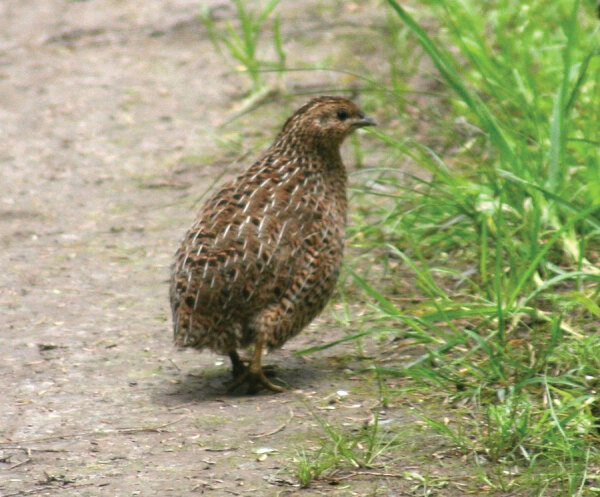Rhabdomyolysis [rabʺdo-mi-olʹə-sis]
From the Greek rhabdos (“rod”) + mus (“muscle”) + lusis (“loosening”), rhabdomyolysis refers to the rapid breakdown of skeletal (striated) muscle, releasing myoglobin into the blood, which can lead to kidney failure. In the Book of Numbers in the Bible, the Israelites grew tired of eating manna. They demanded that God send them meat. God, angry at their insolence, sent them quail but then strikes those who ate the meat with a plague (Numbers 11:31–35). This may have been an early account of rhabdomyolysis, since migrating quail (Figure) eat large amounts of hemlock, a known cause of rhabdomyolysis.
Figure.

Brown quail (Coturnix ypsilophora) by Duncan Wright - Own work, CC BY-SA 3.0, https://commons.wikimedia.org/w/index.php?curid=2998176
Footnotes
Suggested citation for this article: Etymologia: Rhabdomyolysis. Emerg Infect Dis 2020 Jul [date cited]. https://doi.org/10.3021/eid2607.ET2607
Sources
- 1.Huerta-Alardín AL, Varon J, Marik PE. Bench-to-bedside review: rhabdomyolysis—an overview for clinicians. Crit Care. 2005;9:158–69. 10.1186/cc2978 [DOI] [PMC free article] [PubMed] [Google Scholar]
- 2.Rosner F. Biblical quail incident. JAMA. 1970;211:1544. 10.1001/jama.1970.03170090060017 [DOI] [PubMed] [Google Scholar]
- 3.Warren JD, Blumbergs PC, Thompson PD. Rhabdomyolysis: a review. Muscle Nerve. 2002;25:332–47. 10.1002/mus.10053 [DOI] [PubMed] [Google Scholar]


